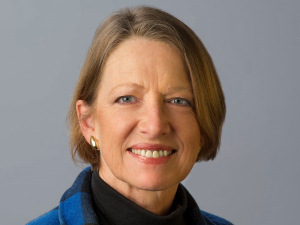OPINION: All models are wrong.
All surveys are shaped by the designers by the choices given. All responses to survey questions are influenced by the starting point of the respondents. Everyone is looking for a bargain in one facet of life or another.
Everybody needs food.
These basic points can be amended with the comment that the results from some models can be useful, survey results can give insights into the perspective of the creator as well as of respondents, and whether one does or doesn’t consider something a bargain depends upon one’s values and position along the supply chain. But everybody does need food – no amendment necessary.
This need for food keeps the New Zealand economy afloat.
The Primary Purpose survey results, released at the beginning of the year, showed that an increasing number of people in New Zealand acknowledge our role in food security and the economy. This is backed by the results of surveys from Research First, which means that the positive vibes about farming are coming from more than one source – which is important when trying to gauge what is really happening.
There is more support from the Curia Poll data (Taxpayers’ Union, January 2025) and the results from IPSOS (October 2024) where the responses show clearly that cost of living and the economy are of more importance in day-today concern than anything else. In the Curia poll, the cost-of-living was the number one concern (over 22% of respondents), the economy was second (17.5%) and the environment was fifth (5.8%). In the IPSOS poll, cost-of-living was top concern (55%), healthcare was second (41%), economy was third (28%) and environment was seventeenth (5%).
This does not mean that people don’t care about the environment. Primary Perspective results show environmental impact as the number one reason people might have negative views about food production. However, the reasons cited appear to be more connected with monocultural cropping overseas than any production system that we have in New Zealand.
Education is required. The Primary Purpose survey results showed that older generations were more positive about farming than younger generations but didn’t ask what the alternatives to farming might be. Nor the unintended consequences of not farming…
If farmers and growers aren’t looking after the land, who will? The Department of Conservation is already spread too thinly (a $70 million funding gap over the next four years was predicted last July).
And where will food be sourced from? Other countries where adherence to environmental, animal welfare and human employment standards are lower than in New Zealand? Or the much-vaunted precision fermentation where sugar crops (which New Zealand can’t grow) are an important input? Will they take-up a plant-based diet not realising the supplements that will be necessary to ensure nutritional adequacy? Or the fact that New Zealand doesn’t have enough cropping land to supply what would be needed?
In parts of the northern hemisphere, farmers are having these conversations with politicians and society through protests. In the UK, for instance, the inheritance tax has resulted in explanations that the family farm won’t exist in the future – and the question is being asked about the corporate alternative.
Family and friends might not realise how farmers in other countries are managing to survive. It is important to keep explaining the facts at summer gatherings.
It is also important to remember that New Zealand farmers have a range of levy and membership bodies working with regional and national government to try and explain the realities of alternatives and unintended consequences. They are calculating the economic impact as well as the potential social disruption. The government has stated that the export economy cannot be doubled in value without the primary sector.
The Bio-Economy is a major focus for the science reorganisation. Michael Porter, American strategy guru, would approve. His mantra is taking your comparative advantage and turning it into a competitive advantage. It works on stage, the runway and the sporting field, and for companies and countries.
Farmers and growers are New Zealand’s competitive advantage. The models and surveys mostly have the same message – and people always need food.
Dr Jacqueline Rowarth, CNZM HFNZIAHS, Adjunct Professor Lincoln University, has an honours degree in Environmental Agriculture and a PhD in Soil Science. She is on the Board of Directors of DairyNZ, Deer Industry NZ and Ravensdown, and of the World Farmers’ Organisation Scientific Council.



















